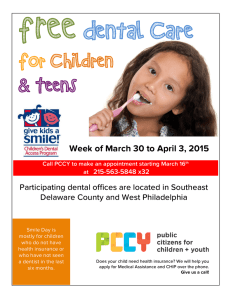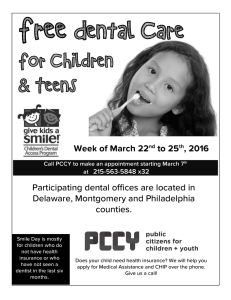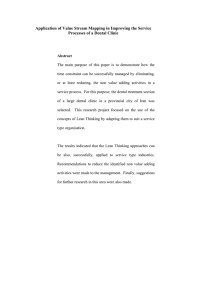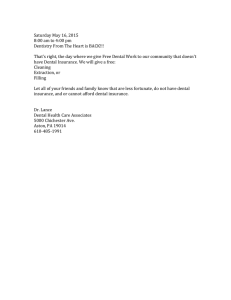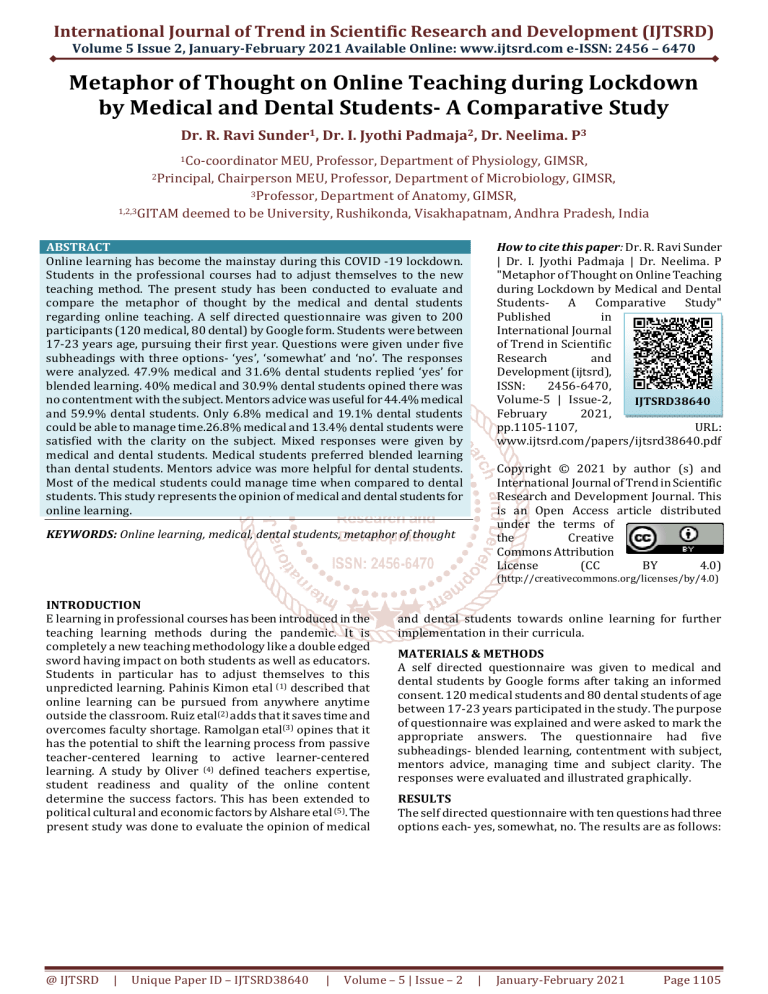
International Journal of Trend in Scientific Research and Development (IJTSRD)
Volume 5 Issue 2, January-February 2021 Available Online: www.ijtsrd.com e-ISSN: 2456 – 6470
Metaphor of Thought on Online Teaching during Lockdown
by Medical and Dental Students- A Comparative Study
Dr. R. Ravi Sunder1, Dr. I. Jyothi Padmaja2, Dr. Neelima. P3
1Co-coordinator
MEU, Professor, Department of Physiology, GIMSR,
2Principal, Chairperson MEU, Professor, Department of Microbiology, GIMSR,
3Professor, Department of Anatomy, GIMSR,
1,2,3GITAM deemed to be University, Rushikonda, Visakhapatnam, Andhra Pradesh, India
How to cite this paper: Dr. R. Ravi Sunder
| Dr. I. Jyothi Padmaja | Dr. Neelima. P
"Metaphor of Thought on Online Teaching
during Lockdown by Medical and Dental
Students- A Comparative Study"
Published
in
International Journal
of Trend in Scientific
Research
and
Development (ijtsrd),
ISSN:
2456-6470,
Volume-5 | Issue-2,
IJTSRD38640
February
2021,
pp.1105-1107,
URL:
www.ijtsrd.com/papers/ijtsrd38640.pdf
ABSTRACT
Online learning has become the mainstay during this COVID -19 lockdown.
Students in the professional courses had to adjust themselves to the new
teaching method. The present study has been conducted to evaluate and
compare the metaphor of thought by the medical and dental students
regarding online teaching. A self directed questionnaire was given to 200
participants (120 medical, 80 dental) by Google form. Students were between
17-23 years age, pursuing their first year. Questions were given under five
subheadings with three options- ‘yes’, ‘somewhat’ and ‘no’. The responses
were analyzed. 47.9% medical and 31.6% dental students replied ‘yes’ for
blended learning. 40% medical and 30.9% dental students opined there was
no contentment with the subject. Mentors advice was useful for 44.4% medical
and 59.9% dental students. Only 6.8% medical and 19.1% dental students
could be able to manage time.26.8% medical and 13.4% dental students were
satisfied with the clarity on the subject. Mixed responses were given by
medical and dental students. Medical students preferred blended learning
than dental students. Mentors advice was more helpful for dental students.
Most of the medical students could manage time when compared to dental
students. This study represents the opinion of medical and dental students for
online learning.
Copyright © 2021 by author (s) and
International Journal of Trend in Scientific
Research and Development Journal. This
is an Open Access article distributed
under the terms of
the
Creative
Commons Attribution
License
(CC
BY
4.0)
KEYWORDS: Online learning, medical, dental students, metaphor of thought
(http://creativecommons.org/licenses/by/4.0)
INTRODUCTION
E learning in professional courses has been introduced in the
teaching learning methods during the pandemic. It is
completely a new teaching methodology like a double edged
sword having impact on both students as well as educators.
Students in particular has to adjust themselves to this
unpredicted learning. Pahinis Kimon etal (1) described that
online learning can be pursued from anywhere anytime
outside the classroom. Ruiz etal(2) adds that it saves time and
overcomes faculty shortage. Ramolgan etal(3) opines that it
has the potential to shift the learning process from passive
teacher-centered learning to active learner-centered
learning. A study by Oliver (4) defined teachers expertise,
student readiness and quality of the online content
determine the success factors. This has been extended to
political cultural and economic factors by Alshare etal (5). The
present study was done to evaluate the opinion of medical
@ IJTSRD
|
Unique Paper ID – IJTSRD38640
|
and dental students towards online learning for further
implementation in their curricula.
MATERIALS & METHODS
A self directed questionnaire was given to medical and
dental students by Google forms after taking an informed
consent. 120 medical students and 80 dental students of age
between 17-23 years participated in the study. The purpose
of questionnaire was explained and were asked to mark the
appropriate answers. The questionnaire had five
subheadings- blended learning, contentment with subject,
mentors advice, managing time and subject clarity. The
responses were evaluated and illustrated graphically.
RESULTS
The self directed questionnaire with ten questions had three
options each- yes, somewhat, no. The results are as follows:
Volume – 5 | Issue – 2
|
January-February 2021
Page 1105
International Journal of Trend in Scientific Research and Development (IJTSRD) @ www.ijtsrd.com eISSN: 2456-6470
Graph 1: number of medical and dental students
Graph 2: responses given by medical and dental students
DISCUSSION
Online education played a key role in medical education
during the pandemic. Professional courses have chosen
online teaching as the prime source. Evans etal(7) have
described that the unprecedented COVID-19 pandemic has
caused sudden shift to adopt online learning enabling the
students to learn remotely. Students should accustom to
learn through internet and adapt themselves to different
learning styles for the effective result. Khalil etal(8)reported
the use of blended learning in preclinical years especially in
anatomical teaching. Longhurst etal(9) focused on the quality
of resources and compensations for the lack of exposure.
Reinholz etal(10) suggested the importance of digital health
platforms for students and patients even after COVID-19.
Dost etal (10) has elaborated on the uses of online teaching in
the continuing medical education. The present study depicts
the opinions of medical and dental students towards online
learning during this pandemic. Blended learning was opted
@ IJTSRD
|
Unique Paper ID – IJTSRD38640
|
more by medical students. Contentment with the subject was
more for dental students. Mentors advice was helpful for
59.9% dental students. Time management was somewhat
possible for 64.2% dental students. 50.20% dental students
opted there was no clarity on the subject. This study can be
more elaborated for students pursuing other courses also.
CONCLUSION
Online teaching during the lockdown showed a mixed
response of opinions between medical and dental students.
Blended learning was more preferred by medical students.
Mentors advice was more helpful for the dental students.
REFERENCES
[1] Pahinis Kimon, Stokes Christopher W., Walsh Trevor
F., Cannavina Giuseppe. Evaluating a blended-learning
course taught to different groups of learners in a
dental school. J. Dent. Educ. 2007; 71:269–278.
Volume – 5 | Issue – 2
|
January-February 2021
Page 1106
International Journal of Trend in Scientific Research and Development (IJTSRD) @ www.ijtsrd.com eISSN: 2456-6470
[2]
Ruiz J. G., Mintzer M. J., Leipzig R. M. The impact of elearning in medical education. Acad. Med. 2006;
81:207.
[3]
Ramlogan S., Raman V., Sweet J. A. comparison of two
forms of teaching instruction: video vs. live lecture for
education in clinical period ontology. Eur. J. Dent.
Educ. 2014; 18:31–38.
[4]
Oliver, R., 2001. Assuring the quality of online leaning
in Australian higher education. In: Wallace, A. E. A. D.
N. M. (Ed.), Moving Online II Conference. Southem
Cross University, Lismore, pp. 222–231
[5]
Alshare K., Al-Dwairi M., Akour I. Student instructor
perception of computer technologies in developing
countries: the case of Jordan. J. Comp. Inform. Syst.
2003; 43:115–123.
[6]
Evans DJR, Bay BH, Wilson TD, et al. Going virtual to
support anatomy education: a STOPGAP in the midst
of the Covid-19 pandemic. Anat Sci Educ 2020;
13:279–83.
doi:
10.1002/ase.1963pmid:
http://www.ncbi.nlm.nih.gov/pubmed/32277598
[7]
Khalil MK, Abdel Meguid EM, Elkhider IA. Teaching of
anatomical sciences: a blended learning approach.
@ IJTSRD
|
Unique Paper ID – IJTSRD38640
|
Clin
Anat
2018;
31:ca.
23052:323–9.
doi:10.1002/ca.23052pmid:
http://www.ncbi.nlm.nih.gov/pubmed/29352730
[8]
Longhurst GJ, Stone DM, Dulohery K, et al. Strength,
weakness, opportunity, threat (SWOT) analysis of the
adaptations to anatomical education in the United
Kingdom and Republic of Ireland in response to the
Covid-19 pandemic. Anat Sci Educ 2020; 13:301–11.
doi:10.1002/ase.1967pmid:
http://www.ncbi.nlm.nih.gov/pubmed/32306550
[9]
Reinholz M, French LE. Medical education and care in
dermatology during the SARS-CoV2 pandemia:
challenges and chances. J Eur Acad Dermatol Venereol
2020; 34:e214–6. doi:10.1111/jdv.16391pmid:
http://www.ncbi.nlm.nih.gov/pubmed/32219888
[10]
Dost S, Hossain A, Shehab M, Abdelwahed A, Al-Nusair
L. Perceptions of medical students towards online
teaching during the COVID-19 pandemic: a national
cross-sectional survey of 2721 UK medical students.
BMJ Open. 2020 Nov 5; 10(11):e042378. doi:
10.1136/bmjopen-2020-042378. PMID: 33154063;
PMCID: PMC7646323.
Volume – 5 | Issue – 2
|
January-February 2021
Page 1107

